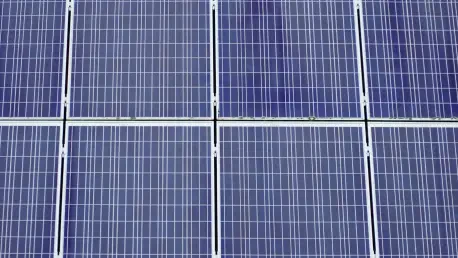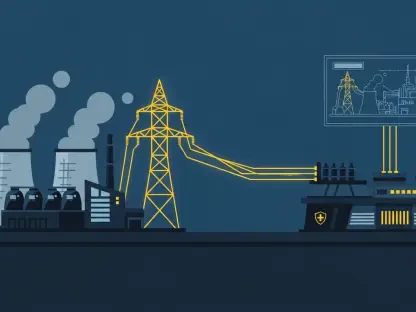Imagine a world where energy bills are a distant memory, where small-scale power needs for sheds, security cameras, or bus shelters are met without the burden of grid dependency or the hassle of extensive wiring. Off-grid solar kits are stepping into the spotlight as a promising solution, offering a sustainable way to power everyday tasks with clean, renewable energy. These innovative systems are designed to provide reliable electricity for a variety of applications, from lighting remote outbuildings to ensuring safety with surveillance systems, all while cutting costs and reducing environmental impact. As energy autonomy becomes a growing priority for many, the question arises: can these kits truly deliver the reliability and practicality needed to replace traditional grid power? This exploration delves into the capabilities of modern off-grid solar solutions, highlighting their features, benefits, and potential to transform how small-scale energy needs are addressed in diverse settings.
Harnessing Solar Power for Diverse Needs
The versatility of off-grid solar kits makes them an appealing choice for a wide range of applications, catering to both practical and critical requirements. These systems are engineered to power everything from landscape lighting to security camera setups, ensuring that even remote locations can have access to consistent electricity. Whether it’s illuminating a barn for late-night tasks or providing energy for bus shelter lighting to enhance safety, the adaptability of these kits stands out. Their design prioritizes functionality across different environments, making them suitable for rural and urban settings alike. Beyond mere convenience, the ability to customize these solutions to specific tasks underscores their growing relevance. By addressing niche power demands without the need for extensive infrastructure, solar kits are proving to be a game-changer for those seeking independence from traditional energy sources, paving the way for more sustainable living.
Moreover, the real-world impact of these kits extends beyond individual use to broader community benefits, particularly in areas where grid access is limited or costly. For instance, powering outbuildings or small structures in isolated regions can significantly improve quality of life by providing essential light and energy for tools. Security applications, such as surveillance systems, also benefit from uninterrupted operation, ensuring protection even during grid failures. The emphasis on small to medium-scale solutions means that users can avoid the complexities of large-scale installations while still achieving reliable results. This focus on accessibility ensures that a diverse array of users, from homeowners to small business operators, can tap into the advantages of solar energy. As these systems become more integrated into everyday scenarios, their role in fostering energy resilience and reducing dependency on fossil fuel-based grids becomes increasingly evident, highlighting a shift toward more self-sufficient power models.
Reliability and Autonomy in Harsh Conditions
One of the standout features of modern off-grid solar kits is their ability to deliver consistent performance, even when faced with challenging weather conditions. Engineered for durability, these systems often come equipped with a backup capacity that allows operation for up to three days without direct sunlight. This means that during prolonged cloudy periods or storms, power remains uninterrupted, providing peace of mind for critical applications like security lighting or communication systems. Such autonomy is a cornerstone of their design, ensuring that users are not left in the dark when conditions are less than ideal. This reliability rivals that of grid-connected setups, but without the associated costs or infrastructure demands, making these kits a compelling alternative for those prioritizing stability in their energy supply across varied climates.
Additionally, the robustness of these solar solutions is complemented by thoughtful engineering tailored to withstand environmental stressors. Hardware built to resist harsh weather, along with guidance on maintaining battery health in cold temperatures, ensures that performance doesn’t falter when it’s needed most. This attention to durability is particularly valuable for remote installations where maintenance access might be limited. The ability to function independently of external power sources also means that outages, a common concern with traditional grids, are no longer a significant risk. By focusing on self-sufficiency, these kits empower users to maintain essential operations regardless of external disruptions. This level of dependability not only enhances safety and functionality but also reinforces the argument for solar as a viable long-term solution for small-scale energy needs, bridging the gap between sustainability and practicality in energy management.
Cost-Effectiveness and Ease of Installation
A major draw of off-grid solar kits lies in their potential for significant cost savings over time, particularly when compared to the expenses tied to grid power. By eliminating the need for trenching, extensive wiring, and monthly utility bills, these systems offer a financially attractive option for powering remote or small-scale sites. The upfront investment is often offset by the absence of recurring fees, making them especially beneficial for locations where connecting to the grid is impractical or prohibitively expensive. This economic advantage is a key factor driving their adoption, as users recognize the long-term value of avoiding ongoing costs while still meeting their energy demands. The financial relief provided by these kits positions them as a smart choice for budget-conscious individuals and organizations looking to optimize resources.
Equally important is the user-friendly nature of these solar solutions, designed to simplify the transition to off-grid power. Many kits arrive as turnkey systems, complete with pre-wired components, batteries, and mounting hardware, which drastically reduces installation time and minimizes the risk of errors. This plug-and-play approach means that even those with limited technical expertise can set up a reliable power source without needing multiple trips to hardware stores. Additionally, tools like solar calculators and sizing guides are often available to help match systems to local sun hours and weather patterns, ensuring optimal performance. This focus on ease of use removes barriers to entry, making sustainable energy accessible to a broader audience. By streamlining the process from purchase to operation, these kits demonstrate that adopting renewable energy doesn’t have to be complex or intimidating, further encouraging their integration into everyday life.
Shaping a Sustainable Energy Future
Reflecting on the journey of off-grid solar kits, their transformative impact on small-scale energy solutions is evident in how they redefine autonomy and accessibility. These systems have proven their worth by powering diverse applications with reliability that matches grid standards, all while sidestepping the costs and hassles of traditional infrastructure. Their ability to operate independently for days without sunlight and endure tough conditions has cemented their status as a dependable alternative. Looking ahead, the next steps involve exploring how to scale these innovations for wider adoption, perhaps by integrating smarter energy storage or expanding educational resources to guide users. Encouraging collaboration between manufacturers and communities could also drive tailored solutions for unique regional challenges. As sustainable energy continues to evolve, leveraging these kits as a foundation for broader resilience offers a promising path, ensuring that clean power remains within reach for all who seek it.









